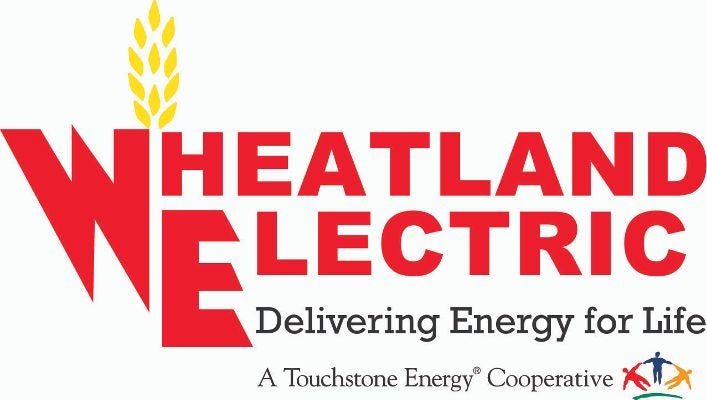Even in the world’s greatest food-producing nation, there are children and adults who face poverty and hunger in every community across America.
That includes our southwest and south-central Kansas communities, where crops are grown to feed the world, but hunger pains still abound.
Nearly a dozen food banks, along with other critical social service agencies, create a wide safety net across our service territory to assist those who are most vulnerable. And we’re here to support the amazing work they do!
To make sure these pantries stay stocked through the holiday season ahead, our employees at Wheatland Electric roll up our sleeves every fall for our annual food drive: CRAM THE VAN.
Starting in 2014, our cooperative set out to find a new way to expand our involvement in the seventh cooperative principle, “concern for community,” which is the belief that, by working together, we can bolster local economies and deal more effectively with social and community needs.
That first year, we found the largest vehicle in our fleet (a big, red extended Chevy passenger van), removed all the seats from the back, plastered on some flashy graphics, and set out to help the people in our communities.
What started off as local community barbecues — a free hot dog or hamburger in exchange for a cash or can donation — has now grown into so much more. Not only do
we host events in every one of our seven districts, but we also coordinate an annual charity golf tournament, food drive competitions at many of our local schools, promote online fundraising, host a fall finale, and more!
Over the last seven years — thanks to the generosity of our cooperative membership — we’ve been able to collect 127,733 pounds of food, or over 63 tons! All items have been distributed to the local food banks in the community the donations were made, which is something we’re very proud of.
We’re headed into our 2021 Cram the Van season with a renewed commitment! From our smallest communities to those that serve our larger towns, our food banks have expressed the continued need to stock shelves and replenish supplies that so many families depend on to put food on the table.
That’s because people who live in rural regions like ours often face hunger at higher rates than people who live in urban areas. They face unique challenges, like a lack of transportation to grocery stores and food pantries, job opportunities concentrated in more low-wage industries, and higher rates of unemployment or underemployment to name a few.
To combat some of these continual challenges, volunteers at the Community Food Bank of Barton County have recently increased the frequency with which families can seek assistance from the food pantry — once per month, up from five times per year prior to the coronavirus pandemic.
Each individual seeking assistance — old or young — receives a box of 20 items of food that can last about two weeks and is valued around $20. That box of food will feed a family member for about two weeks, according to Ruth Behrens, president of Great Bend’s food bank.
“Different people have emergencies at different times. Anyone who has a need can come in and get help because we have no income requirement,” Behrens said. “A lot of people believe we are government-funded, but we are not. We rely on private donations and the generosity of locals — a lot of people don’t know that it’s their neighbors who are supplying their food.”
Many of the food bank representatives we spoke with echoed a similar sentiment: the need in their communities is seemingly less severe than last year during the height of the coronavirus pandemic, which is good news. However, that doesn’t mean we put our foot on the brake.
“We’re excited that people are doing a little better, and food wise, we’re in good shape right now,” said Velta Glenn, director of the Caldwell Food Bank. “However, money wise, to pay our utilities and other costs, that’s a different story.”
Glenn said the food pantry in Caldwell also relies on private donations for its operational costs and purchases of household products like toilet paper and cleaning products that many families can’t purchase with food stamps.
“We can always use food, but cash is better,” Glenn said, adding that because there is a need for household and other hygiene items, cash is almost always the most valuable donation an individual can make.
In Tribune, the local need is also met through private donations and the generosity of community residents, according to Kathleen Dowling, a representative of the food pantry.
The Greeley County Food Pantry is open once a week, on Wednesday mornings, and serves about 25 families per month, a number that has remained steady through the pandemic, she added.
Most of the food supplied in Tribune comes from the Kansas Food Bank in Wichita, along with discounted items from the local grocery store. Dowling said she is looking forward to the future of the food pantry, as she builds up both its board leadership and with the opening of a new building to replace their dilapidated facility prior to the start of next year.
At Wheatland, we’re also hopeful for what’s ahead on the road! We’re excited to make Cram the Van 2021 our best year yet and assist our local food pantries with some of the supplies they need to power through the holiday season and steer themselves into the new year.
Every year, we Cram the Van because we care. And every year, our communities show us why the sweat and toil are worth all the effort. Thank you to all those involved who help us Cram the Van and fight local hunger! Yes WE Can, Cram the Van!





